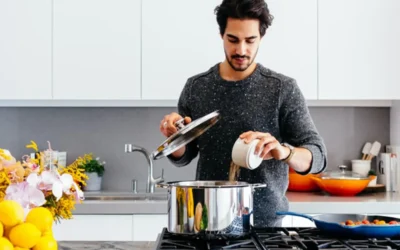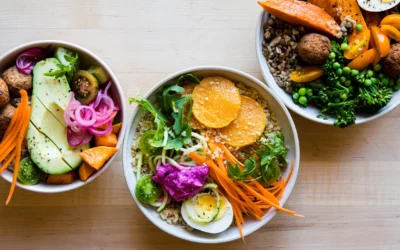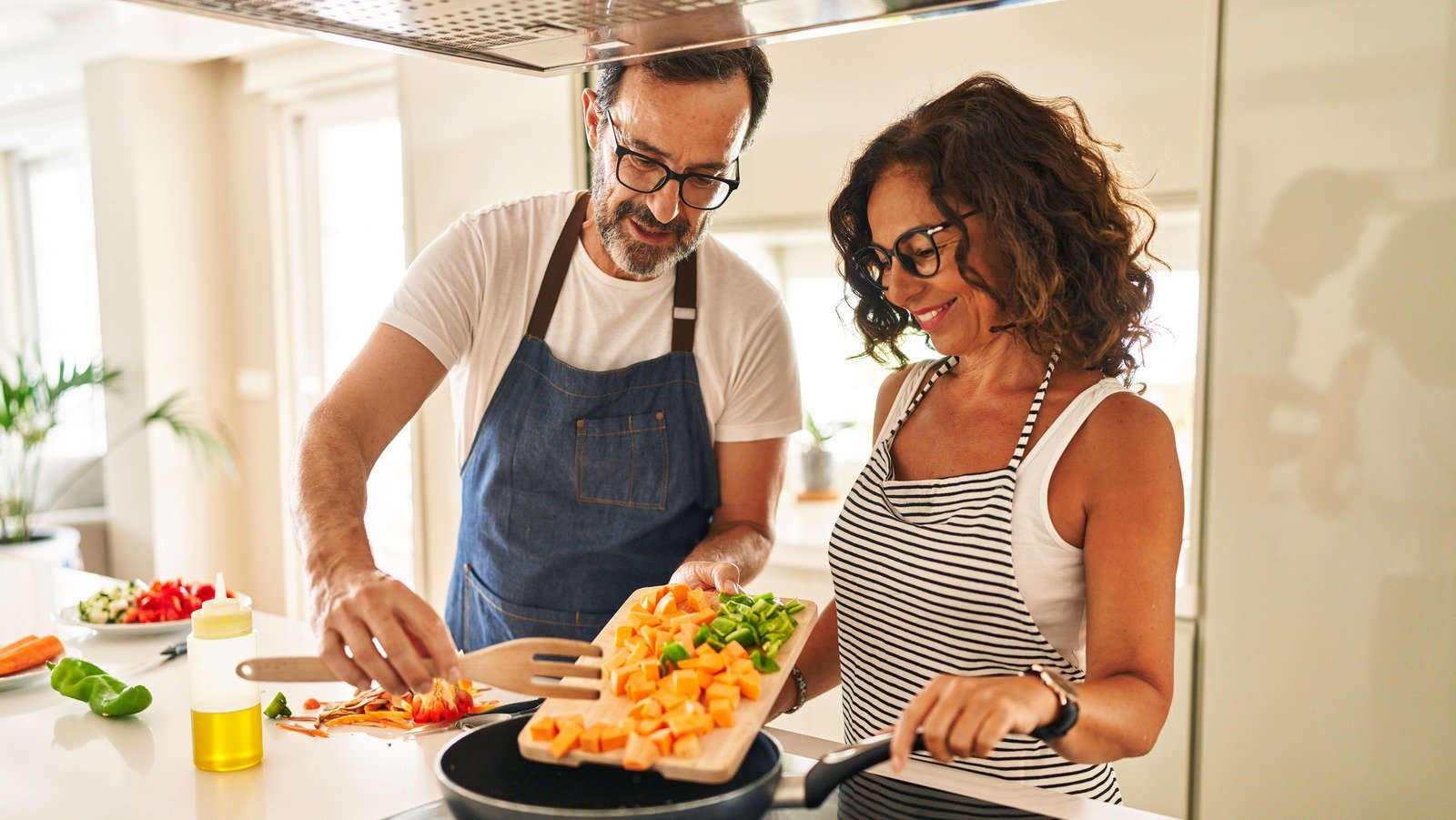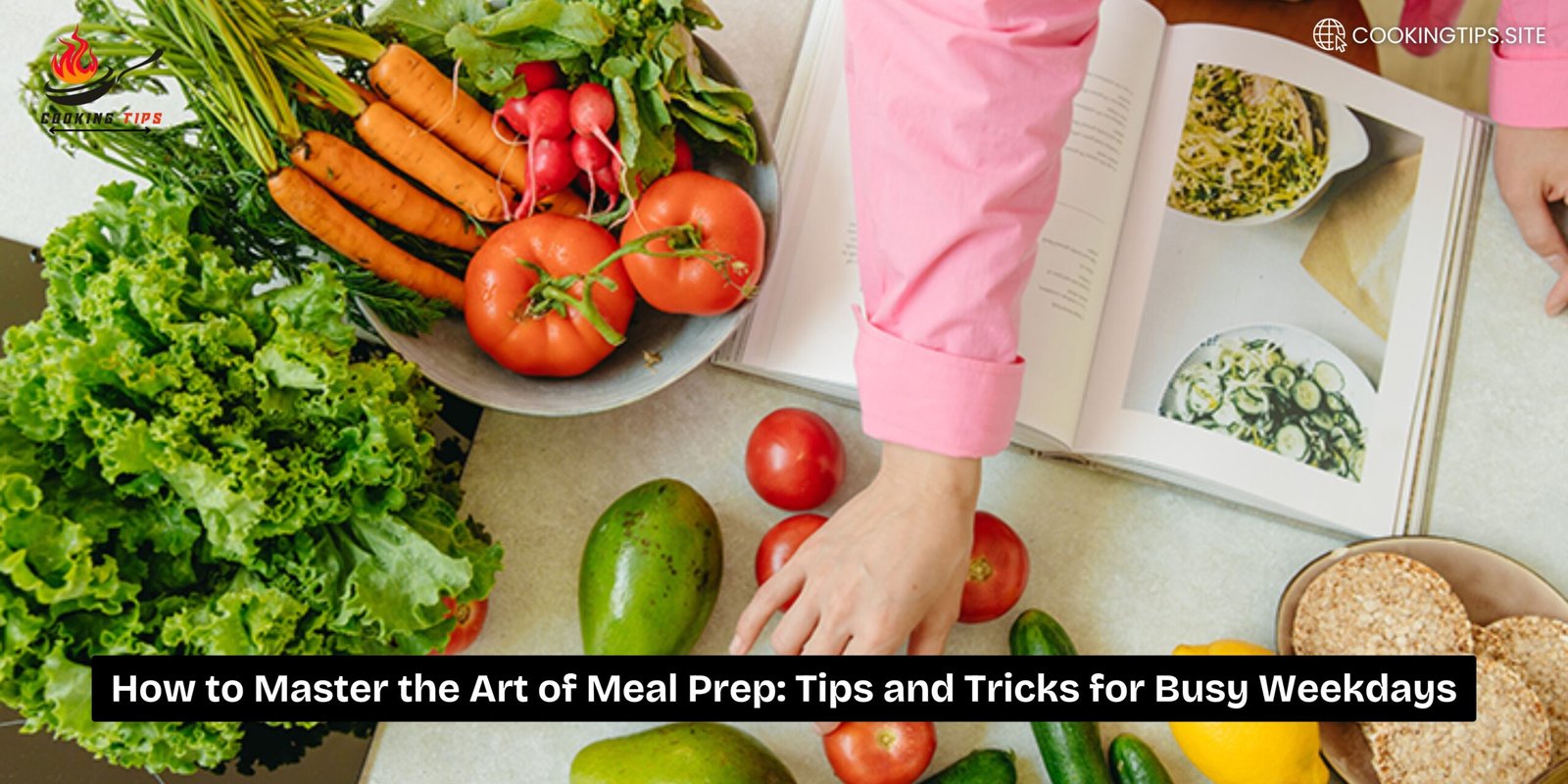If you’re just starting to explore the world of cooking, the kitchen can seem like a daunting place. However, cooking doesn’t have to be complicated or stressful. With the right tools, knowledge, and techniques, you can become confident in the kitchen and start making delicious meals. Whether you’re cooking for yourself or preparing a meal for friends and family, these 10 essential cooking tips will help you get started on the right foot.
1. Read the Recipe Before You Start
One of the biggest mistakes beginners make is diving into a recipe without reading it all the way through first. Understanding the steps and gathering all the ingredients before you start cooking will save you from last-minute stress.
- Why It’s Essential: Reading the recipe ensures that you know what to expect, what tools you’ll need, and how much time the dish will take to prepare. It will also help you avoid missing any key steps or ingredients.
2. Keep Your Knives Sharp
A sharp knife is one of the most important tools in the kitchen. It’s safer and more efficient to use, as it allows you to cut through ingredients smoothly without risking accidents.
- Why It’s Essential: A dull knife requires more force, making it more likely to slip and cause injury. Keep your knives sharp by using a sharpening stone or having them professionally sharpened regularly.
3. Learn How to Sauté
Sautéing is one of the most fundamental cooking techniques you’ll use in the kitchen. It involves cooking food quickly in a small amount of oil or butter over medium-high heat, and it’s perfect for vegetables, meats, and seafood.
- Why It’s Essential: Knowing how to sauté allows you to cook ingredients evenly, preserve their flavor, and keep their texture intact. It’s a quick and effective way to prepare many types of food.
4. Don’t Overcrowd the Pan
When cooking ingredients like vegetables or meat, it’s tempting to throw everything in the pan at once, but overcrowding the pan will cause the food to steam rather than brown. This results in a less flavorful and less textured dish.
- Why It’s Essential: Overcrowding prevents the Maillard reaction (the process that gives food its golden-brown color and rich flavor) from happening. Cooking in batches ensures that each piece gets the proper amount of heat and space.
5. Taste as You Go
Seasoning is key to making great food, and it’s important to taste your food as you cook. Adjusting seasoning at the right moments allows the flavors to develop and ensures you don’t underseason or overseason.
- Why It’s Essential: Tasting while cooking allows you to fine-tune flavors, add more salt or spices, and avoid common cooking mistakes. Don’t wait until the end to taste—frequent tasting helps create a perfectly balanced dish.
6. Use Fresh Ingredients Whenever Possible
While frozen and canned ingredients have their place in cooking, using fresh ingredients will often yield better flavor and texture. Fresh produce, herbs, and meats can elevate your dishes and make them more vibrant.
- Why It’s Essential: Fresh ingredients not only improve the taste of your food but also ensure higher nutritional value. Whenever possible, choose fresh ingredients to give your dishes that extra touch.
7. Don’t Be Afraid to Experiment
Cooking is as much about creativity as it is about following recipes. Don’t be afraid to swap ingredients, try new spices, or adjust a recipe to suit your tastes. Experimenting with flavors and textures is part of the fun!
- Why It’s Essential: Experimenting helps you understand what works and what doesn’t in cooking, allowing you to build your culinary confidence. Plus, trying new things can lead to delicious discoveries that you wouldn’t find by sticking to a recipe exactly.
8. Invest in a Few Good Tools
You don’t need a full kitchen arsenal to cook delicious meals. Start with a few essential tools that make a big difference in your cooking experience.
- What You’ll Need: A sharp chef’s knife, a sturdy cutting board, a non-stick skillet, a saucepan, measuring cups and spoons, and a reliable set of tongs. These tools will help you with everything from chopping vegetables to frying eggs to boiling pasta.
- Why It’s Essential: The right tools make cooking safer, easier, and more enjoyable. Good-quality kitchen gear doesn’t have to be expensive, but investing in a few essentials can make your cooking experience much smoother.
9. Master the Art of Cooking Rice and Pasta
Rice and pasta are staple foods in many kitchens, and getting them right is a basic but important skill for any beginner cook. There’s nothing more frustrating than mushy pasta or undercooked rice.
- Why It’s Essential: Perfectly cooked rice and pasta can form the base of many meals, and getting them right will set you up for success in countless dishes. Learn how to cook rice using the right water-to-rice ratio, and cook pasta in plenty of water with a pinch of salt.
10. Clean as You Go
One of the best habits to develop as a beginner cook is cleaning up as you work. It keeps the kitchen organized, reduces stress, and saves time after you finish cooking.
- Why It’s Essential: Cleaning while you cook allows you to stay organized, so you’re not left with a mountain of dirty dishes at the end. It also helps you avoid accidents in a cluttered kitchen. Plus, when you’re done cooking, you can enjoy your meal without the looming chore of cleaning up.
Conclusion
Cooking doesn’t have to be overwhelming, even for beginners. By following these essential cooking tips, you’ll build a solid foundation for your culinary journey. From learning fundamental techniques like sautéing and seasoning to investing in the right tools and building good habits, these tips will help you create delicious, well-balanced meals while building your confidence in the kitchen. Happy cooking!





